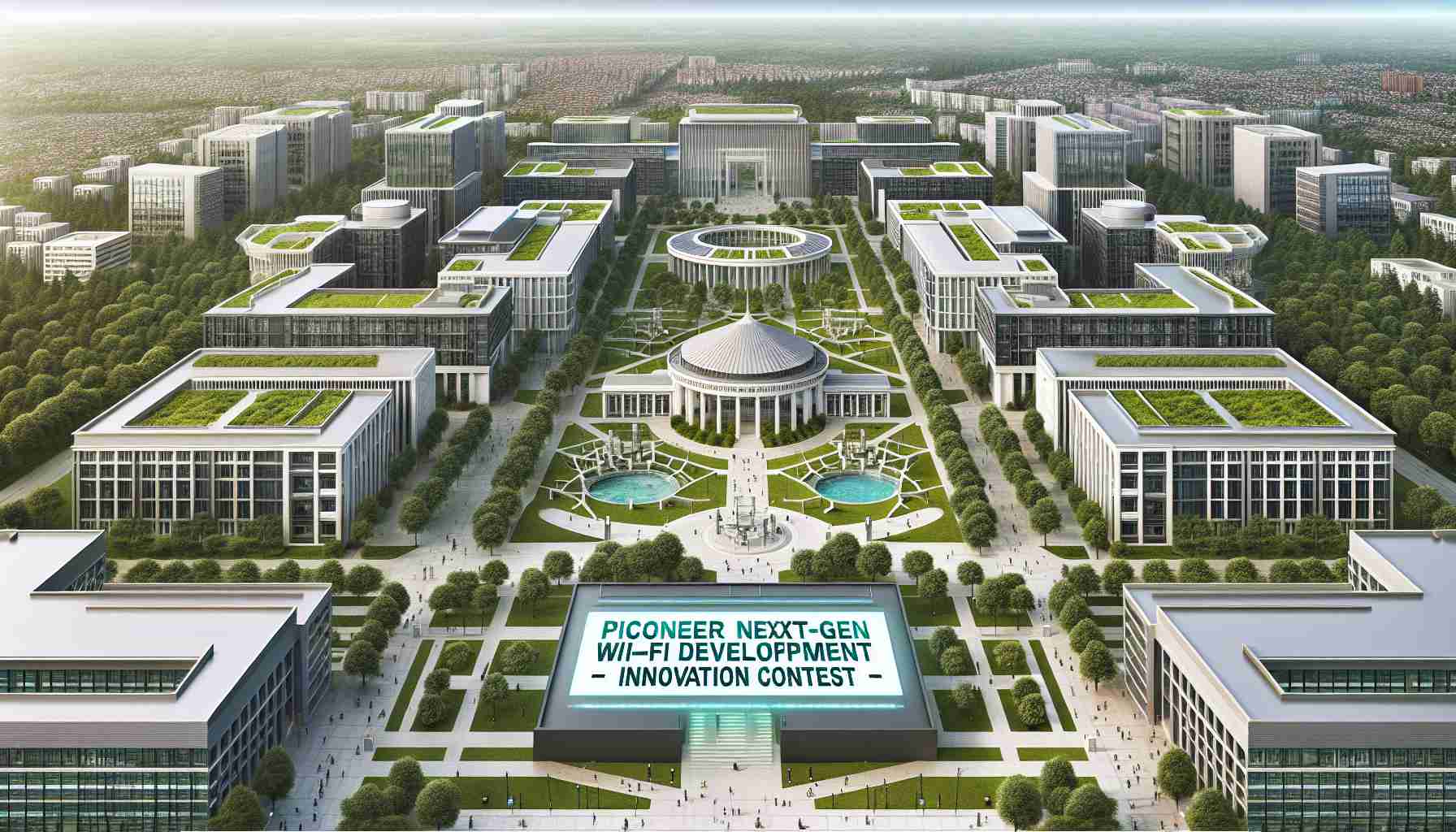King Saud University Collaborates with Technology Giant Huawei on Connectivity Innovation
In an ambitious move to drive the next generation of wireless technology, King Saud University has partnered with global tech leader Huawei to devise a unique challenge. The ‘Imagine Wi-Fi 7’ Innovative Application Contest is orchestrated to ignite inventive approaches to Wi-Fi 7 use cases from ICT specialists in the Middle East and Central Asia. This venture is part of a broader strategy to propel Wi-Fi 7 into mainstream utilization, marking a significant shift in wireless networking potential.
Huawei Launches a Contest to Unearth Wi-Fi 7 Applications
Huawei emerges as a pioneer, touting the industry’s inaugural Wi-Fi 7 solutions, and seeks to stimulate conversation around its latest offering. The ‘Imagine Wi-Fi 7’ contest calls upon a myriad of voices—customers, academic partners, research entities, and tech analysts—to delve into Wi-Fi 7’s distinctive advantages and possible integrations within various sectors. This approach is poised to quicken the pace at which Wi-Fi 7 is embraced, ensuring that its transformative capabilities are recognized.
Recognition and Awards for Innovators of Wi-Fi 7
The contributions of participants, submitted in video format, aim to align with a digitally immersive future. Those who lead the charge in Wi-Fi 7 innovation through the contest will be heralded as trailblazers, honored with accolades and certificates from both King Saud University and Huawei. Select victors will gain the privilege of attending the Huawei Tech Carnival Tour, slated for May 2024 in Baku, Azerbaijan.
University and Tech Leaders Hail the Onset of the Wi-Fi 7 Epoch
King Saud University affirms their enthusiasm in exploring Wi-Fi 7’s capabilities in conjunction with Huawei, with a collective goal of redefining wireless connectivity for an increasingly digital society. Concurrently, Huawei champions their commitment to wireless innovation and envisions the ‘Imagine Wi-Fi 7’ contest as a catalyst in ushering a new standard in connectivity—with particular focus on enriching experiences in education, healthcare, retail, and manufacturing sectors. With the dawn of Wi-Fi 7, the global push for upgraded network experiences gains momentum, supported by a blend of industry collaboration and competitive ingenuity.
King Saud University and Huawei’s Quest for Wi-Fi 7 Innovation
King Saud University’s collaboration with Huawei on the ‘Imagine Wi-Fi 7’ contest aligns with the growing global focus on developing more efficient, faster and reliable wireless communication standards. Wi-Fi 7, which is expected to follow the current Wi-Fi 6 and 6E standards, aims to provide higher data rates, lower latency, and improved capacity, thereby enhancing user experience for both personal and business applications.
Exploring the Future of Connectivity with Wi-Fi 7
As the industry anticipates the emergence of Wi-Fi 7, contests like the one initiated by Huawei offer invaluable insight into potential use cases and challenges. These include optimizing the technology for the Internet of Things (IoT), addressing security concerns, and ensuring compatibility with existing devices and infrastructure. Engaging the community, especially through academic partnerships, can lead to groundbreaking ideas that push the envelope on what is possible with such technology.
Recognizing Pioneers in the Wireless World
The commitment to recognize and reward participants in the contest underscores the importance of fostering innovation and encouraging the sharing of ideas. By facilitating a platform for recognition, King Saud University and Huawei are motivating individuals and organizations to contribute towards a future that is more connected than ever.
Addressing the Wi-Fi 7 Future
King Saud University and Huawei’s collaboration aids in preparing the current and next generation of ICT professionals for the imminent advancements in wireless technology. Academia’s involvement ensures that research and theory align with practical, industrial applications of such technology.
Key Questions and Answers:
What is Wi-Fi 7?
Wi-Fi 7 is the future wireless technology standard, expected to succeed Wi-Fi 6/6E. It promises higher data throughput, efficiency, and lower latency.
Why is the development of Wi-Fi 7 important?
As more devices connect to the internet and demand for data grows, Wi-Fi 7 will be crucial in managing the increased traffic, providing reliable connections, and supporting new applications like augmented reality and IoT.
Advantages and Disadvantages:
Advantages:
– Potential for faster data speeds and improved efficiency
– Lower latency which is critical for applications like gaming and real-time communication
– Greater capacity to support more devices, which is increasingly important in densely populated areas and for IoT applications
Disadvantages:
– May require new infrastructure and devices to fully benefit from the improvements, implying additional costs
– Considering the speed of technological advancement, Wi-Fi 7 might have a short lifespan before an even more advanced standard is developed
– Potential compatibility issues with older devices if not managed properly
Key Challenges:
– Ensuring the technology is accessible and affordable for widespread adoption
– Balancing the race for innovation with considerations for environmental impact and sustainability
– Addressing security concerns that come with any new technology to maintain user trust and safety
Related Links:
For those interested in staying updated on King Saud University’s initiatives, access their website at King Saud University.
To learn more about Huawei’s foray into Wi-Fi 7 and other technological innovations, visit Huawei.
Both King Saud University and Huawei are key players in advancing wireless communications technology, and their collaborative effort underscores the importance of partnerships in driving technological progress.
The source of the article is from the blog j6simracing.com.br
